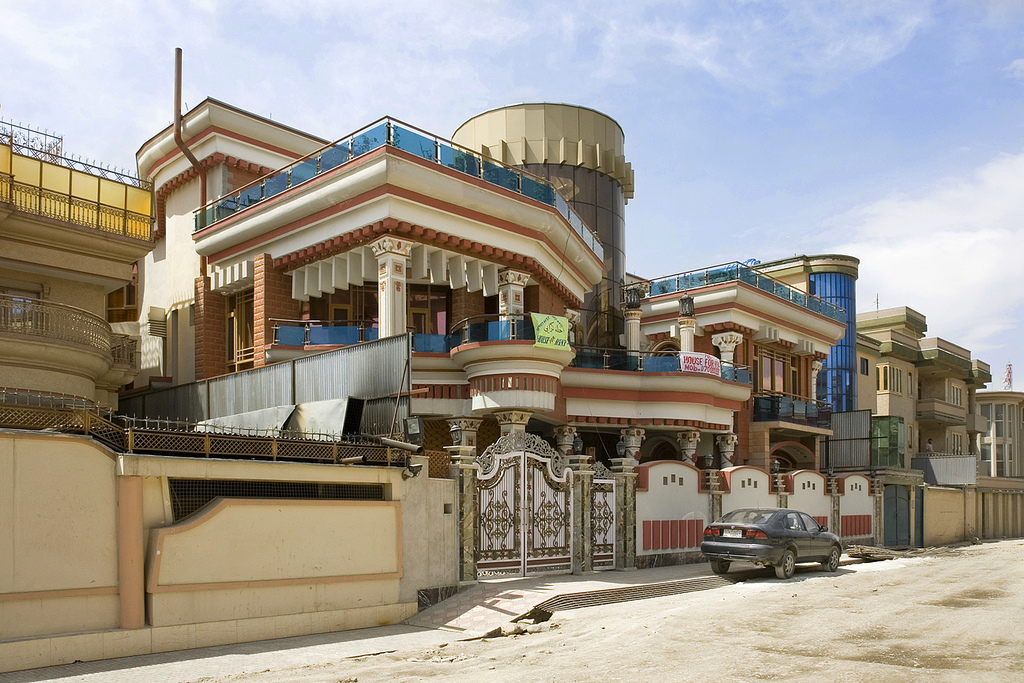The real estate market in Afghanistan is a growing yet complex field. It combines opportunities in residential, commercial, and land transactions with challenges posed by economic conditions and the country’s evolving legal frameworks. For those passionate about property dealings and a commitment to understanding the market, a career as a real estate agent in Afghanistan can be highly rewarding. This manual will go over the procedures, abilities, and information needed to start this career path.
The Real Estate Market in Afghanistan
Afghanistan’s real estate industry has seen notable growth in recent years due to reconstruction efforts, urbanization, and the increasing need for housing and commercial spaces. However, the market also reflects the country’s unique challenges and dynamics.
Key Features of the Afghan Real Estate Sector
- Residential Properties: The demand for affordable housing is driven by a growing population and urban migration to cities such as Kabul, Herat, and Mazar-e-Sharif.

- Commercial Properties: The expansion of businesses, NGOs, and international organizations has created a demand for office spaces, warehouses, and retail outlets.
- Land Investments: Buying and selling land for agriculture, development, or industrial use remains a significant area of opportunity.
- Rental Market: Rentals are highly sought by expatriates, organizations, and locals moving to urban areas.
Despite opportunities, issues like land disputes, unclear property titles, and an inconsistent regulatory framework make it crucial for real estate agents to navigate this market carefully and ethically.
Skills and Qualities for Success
To succeed as a real estate agent in Afghanistan, certain skills and personal attributes are essential:
- Knowledge of Property Laws: Understanding Afghanistan’s property and land regulations ensures smoother transactions.
- Networking Ability: It is key to build a strong network with property owners, buyers, developers, and local authorities.
- Negotiation Skills: Closing deals requires mediating between parties and finding mutually beneficial solutions.
- Market Insight: Staying updated on property values, trends, and local hotspots is crucial for offering sound advice to clients.
- Resilience and Adaptability: The Afghan real estate market has challenges, and a flexible, problem-solving approach is vital for long-term success.
Steps to Becoming a Real Estate Agent in Afghanistan
Understand the Market
The first step toward becoming a real estate agent in Afghanistan is gaining an in-depth understanding of the local market. Research the following:
- Popular neighborhoods in cities like Kabul, Herat, and Kandahar.
- Typical property values for residential, commercial, and rental properties.
- Demand for land and property types in urban and rural areas.
Understanding market trends and client preferences will make you a knowledgeable and reliable agent.
Learn Property Laws and Regulations
Afghanistan’s property laws mix formal legal structures and traditional practices. Understanding these laws is essential for facilitating legal and ethical transactions. Key areas to focus on include:
- Land Management Law: Governs land ownership, transfer, and disputes.
- Sharia Law: Influences inheritance and property-sharing arrangements.
- Local Resolution Mechanisms: Community-based systems, such as jirgas, often play a role in resolving property disputes.
Keeping up-to-date with legal changes or government initiatives to regulate the real estate industry will further enhance your expertise.
Gain Education and Training
Afghanistan has no strict academic requirements for becoming a real estate agent. However, education and training can significantly enhance your credibility and skill set.
- High School Diploma: This basic qualification improves your communication and organizational abilities.
- Professional Training: Enroll in workshops or seminars on property management, sales techniques, or real estate marketing.
- Online Courses: Platforms such as Coursera or Udemy offer courses tailored to property management, legal aspects, and client relations.
Training provides foundational knowledge and helps you gain confidence in dealing with clients and navigating the market.
Develop Practical Experience
Practical experience is invaluable for becoming a successful real estate agent.
- Join a Real Estate Agency: Working for an established agency gives you access to resources like property listings and experienced mentors.
- Start as an Assistant: To learn the nuances of the trade, begin as an assistant to a seasoned agent.
- Intern with NGOs or Property Developers: Many organizations in Afghanistan deal with land acquisition and property management, offering a great learning opportunity.
Hands-on experience allows you to build your network, develop client-handling skills, and understand real-world challenges in the property market.
Establishing Your Career
Build a Personal Brand
Standing out is vital in a competitive market. Building a personal brand establishes your credibility and attracts potential clients.
- Create a Strong Online Presence: Use platforms like Facebook, Instagram, and property portals to showcase listings and share market insights.
- Leverage Word-of-Mouth Marketing: Satisfied clients can be your best advertisement in a close-knit community.
- Maintain Professionalism: Reliable communication, ethical practices, and prompt service help establish trust.
Focus on a Niche
Specializing in a specific segment of the market can help differentiate your services. Popular niches in Afghanistan include:
- Luxury Real Estate: Cater to expatriates and affluent locals.
- Rental Properties: Assist landlords and tenants in urban hubs.
- Land Transactions: Help investors and developers secure plots for agriculture or construction.
Challenges in the Afghan Real Estate Market
The Afghan real estate sector presents unique challenges that agents must navigate:
- Unclear Property Titles: Disputes over land ownership are common due to inadequate public records.
- Legal and Bureaucratic Hurdles: The lack of a standardized property registration system can complicate transactions.
- Economic Instability: Fluctuating market conditions and currency values can affect property demand and prices.
- Security Concerns: Political instability and regional conflicts may limit activity in certain areas.
Understanding these challenges and adopting proactive strategies will enhance your effectiveness as an agent.
Opportunities for Career Growth
Expand Your Services
As you gain experience, consider diversifying your offerings to include:
- Property Management: Oversee rental properties on behalf of landlords.
- Investment Advisory: Assist clients in identifying lucrative property investments.
- Real Estate Consulting: Offer guidance on buying, selling, or leasing properties.
Establish Your Agency
After gaining sufficient experience, you may establish your real estate agency. This allows for greater autonomy and income potential.
Build Strategic Partnerships
Collaborate with developers, contractors, and financial institutions to access new opportunities and expand your client base.
The Future of Real Estate in Afghanistan
The future of Afghanistan’s real estate market holds promise, driven by urbanization, reconstruction efforts, and increasing demand for housing and commercial spaces. While challenges remain, the potential for growth and career development is significant for those willing to adapt and persevere.
Agents investing in continuous learning, ethical practices, and client satisfaction will succeed in this evolving industry.
Conclusion
Becoming a real estate agent in Afghanistan offers unique opportunities and challenges. While navigating unclear property titles, legal complexities, and fluctuating economic conditions can be daunting, the rewards of a thriving real estate career are substantial.
By gaining market knowledge, understanding local laws, and building practical experience, you can establish yourself as a trusted and successful professional in the industry. Whether working with residential properties, commercial spaces, or land transactions, your role as an agent contributes to the country’s rebuilding and growth.
In this dynamic market, dedication, resilience, and a commitment to serving clients honestly and professionally will pave the way for long-term success. Whether starting with an agency, specializing in a niche, or launching your own business, the opportunities are vast in Afghanistan’s real estate sector.
Frequently Asked Questions (FAQs)
What qualifications do I need to become a real estate agent in Afghanistan?
In Afghanistan, no mandatory formal qualifications are required to become a real estate agent. However, having a high school diploma and participating in property-related workshops or training is highly recommended to gain a basic understanding of the real estate market. Practical experience is essential, so working under the mentorship of an experienced agent or in an established agency will help you develop the necessary skills and knowledge. Additionally, familiarity with Afghan property laws, including land ownership and dispute resolution mechanisms, is crucial for success in this field.
How can I ensure the legitimacy of a property title in Afghanistan?
Property titles in Afghanistan can sometimes be unclear or disputed due to the lack of comprehensive public records. To ensure legitimacy, you should carefully verify property documents through the relevant government authorities, including the Ministry of Urban Development and Housing, local land registration offices, and property title offices. Engaging a legal expert to check for potential land title issues is also a wise step. Being thorough in your research and educating your clients about potential risks is essential to prevent future legal complications.
What challenges do real estate agents face in Afghanistan?
Real estate agents in Afghanistan face several challenges, including unclear property titles, complex legal frameworks, and security concerns in certain regions. Additionally, fluctuations in the local economy and political instability can affect property values and demand.










